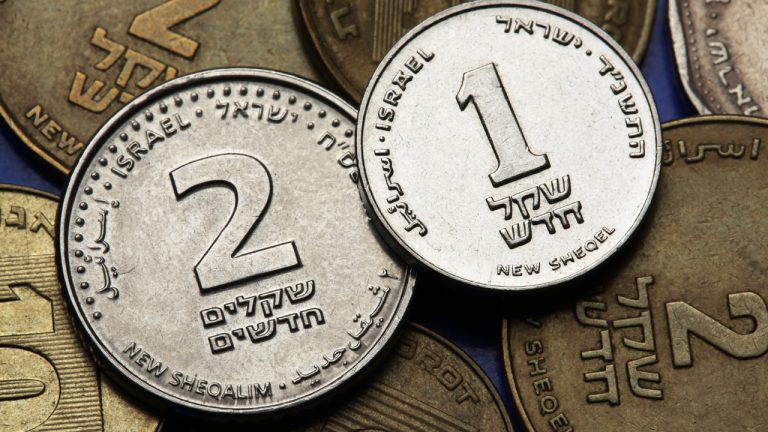
On Monday, as tensions escalated between Israel and Hamas militants from the recent weekend skirmishes, the Israeli shekel plummeted to its weakest level in seven years. Responding to the declining currency, the Bank of Israel unveiled a strategy to offload up to $30 billion in foreign exchange, alongside an additional $15 billion through swap initiatives.
Bank of Israel Intervenes with $30B FX Move as Shekel Suffers Amid Militant Skirmishes
Amid the tumultuous events of the past weekend involving Israel and Hamas, the Israeli shekel faced a significant blow. By Monday, the currency had descended to its lowest point in seven years, prompting immediate action from the Bank of Israel. To address this, the central bank rolled out a press release, highlighting its intent to harness foreign exchange (FX) markets to amplify liquidity.
“The Bank of Israel announces a program to sell up to $30 billion in foreign exchange,” the announcement disclosed. “The bank will operate in the market during the coming period in order to moderate volatility in the shekel exchange rate and to provide the necessary liquidity for the continued proper functioning of the markets,” the central bank’s announcement added.
By Tuesday, data spanning five days revealed a 2.8% decline in the shekel (ILS) against the U.S. dollar and a more significant 7.25% dip over the preceding six months. Even though the Bank of Israel has intervened in the FX markets, it remains firm in its stance against hiking the benchmark interest rate. Golan Benita, the chief of the central bank’s market division, commented to the media:
The scheme is too big for speculators to test us.
Recalling the nation’s previous financial downturn in 2008 during the global “Great Recession,” predictions from the ex-deputy governor of the Bank of Israel suggest a looming recession by 2024. Following the recent strife, the price for insuring the country’s debt against potential defaults surged by 25 basis points, marking a peak not witnessed since 2009.
Israel’s GDP growth has seen its highs and lows, typically oscillating between 2% and 5%. It even soared to an impressive 7.5% in 2000 but took a nosedive into negative territory from 2001 until mid-2003. Notably, on Monday, the 10-year shekel bond peaked at 4.5%, a rate that hadn’t been observed since 2012. The Bank of Israel, in its announcement, emphasized its commitment to vigilantly observing market trends and employing necessary measures when warranted. The bank added:
In addition to the $30 billion program, and as necessary, the Bank will provide liquidity to the market through swap mechanisms in the market of up to $15 billion.
Markets on Monday witnessed a tumult in equities and cryptocurrencies due to prevailing pessimism, while oil, the yen, and precious metals seized the opportunity. The four key U.S. indices experienced wild fluctuations on Monday, yet both stocks and digital currencies rose higher by the day’s end. However, as profit-seekers offloaded, gold and silver prices dipped. By Tuesday, an ounce of gold declined by 0.33%, and silver had slipped 0.89%.
What do you think about the conflict in Israel shaking up markets and causing the central bank to intervene in FX markets? Share your thoughts and opinions about this subject in the comments section below.
from Bitcoin News https://ift.tt/Ay45raF
Comments
Post a Comment